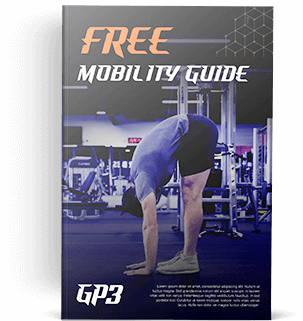Key Points:
- Synchronicities can be understood as moments that seem like they must be related even if there’s no logical reason to believe so.
- Whether or not these moments share a “causal connection” doesn’t really matter, in my opinion. We can enjoy them, regardless.
- An incident during a recent soccer game led to a synchronicity I won’t soon forget.
Estimated reading time: 5-10 minutes
Listen to this episode on Spotify!
A friend of mine who joined me in Mexico for a powerful meditation retreat in 2022 shared a quote from his mentor on our way home from that trip. “A synchronicity is a love letter from the universe.” This quote made me smile then and still does every time I recall it. And it’s one such synchronicity I’m excited to share with you today.
But first, in case you’re unfamiliar with the term, what the heck is a “synchronicity?”
Coined by legendary psychologist Carl Jung in the late 1920’s, a synchronicity, “describes circumstances that appear meaningfully related yet lack a causal connection.” To use a simple example, have you ever thought about reaching out to a friend with whom you haven’t spoken in a while, only to have them text or call you almost immediately? That’s a synchronicity. This concept causes some controversy in empirical, scientific circles, as there are those who believe or would claim that thinking about this friend somehow caused them to feel the need to call you.
Is this true? Who knows. I don’t think it really matters. The point is, synchronicities are cool. They serve as a wonderful reminder that there’s more to this existence than we could ever possibly hope to understand, and can help us maintain our sense of childlike wonder and appreciation for the universe. I can think of fewer things our species needs more of right now!
So, with that, let me tell you about a recent synchronistic experience…
On Tuesday nights, I play soccer on a very skilled squad in a highly competitive 6v6 league. Just about everyone on my team either played Division-I or professionally, so this team rarely loses. In fact, our most common downfall is a complacency that leads to starting matches slowly. We often win despite going a goal behind in the first five minutes and we seem to subconsciously believe, “We’ll be fine. We always score a bunch of goals.”
So, in a recent game, when I scored about two minutes into the match and one of our best players scored again moments later I thought, “Well, this one is pretty much over.” I was prepared to settle into a fun game for a comfortable victory when BAM! an opposing player absolutely crunched my ankle with an ill-timed, studs-up lunge for the ball. I’ve played soccer for almost 30 years now (wow, I felt old typing that), so I’m used to getting kicked. In fact, I relish the physical side of the game. Like Julius Campbell to Petey Jones in Remember the Titans, “I love me a little contact!”
But not this kind. My ankle friggin’ hurt, and I limped to the sidelines to shake it off. It was the kind of tackle that would have resulted in a red card in 90% of matches and at the very least a yellow, but the referee somehow missed its severity and merely called a foul. I was in too much pain to care, and figured we would comfortably win the match anyway, so I simply hobbled off.
What happened next surprised me quite a bit.
The player who cleaned me out subbed himself out of the game, came up to me on the sidelines, and apologized profusely. He said that he had badly mistimed the challenge and gone for the ball way too hard, but didn’t have any malicious intent. He seemed completely sincere, and I accepted his apology without reservation. I told him I really appreciated him coming to speak with me, and that his apology was a far cry from the, “Get up, you pussy!” many players would have doled out in that situation.
Also surprising was that by the time I re-entered the match toward the end of the first half, we were losing 3-2. Lest you get the wrong idea about my perception of my abilities, this was not because I had spent so much time off the field. In fact, playing with my current teammates has been a healthy ego exercise in accepting my place as an average player on this squad. I’m the oldest outfield player by a few years (the only one in their 30’s), and many of the guys played at a higher level than I did. This has not been the case for most soccer teams I’ve played for since finishing college, so it’s been an adjustment. But, suffice it to say, the notion that we were going to cruise to a comfortable victory had changed completely by the time I went back on the field.
The match had devolved into an ill-tempered affair with both teams antagonizing each other. And to be honest, it was a player on my team that started it. On his day, this guy is probably the best player in the league, one of the most gifted attackers I’ve ever played with or against. But on other days, he’s a lightning rod for negativity on both teams…frustrating his own by refusing to pass and trying to dribble by three opposition players every time he receives the ball, all while talking smack to any opponent who comes within three feet of him.
Well, it was one of those days, and we eventually lost 5-4 despite playing quite well overall. No fewer than four of the goals we conceded were the result of players making uncharacteristic individual errors. Rough day. To add insult to injury, the other team were all guys just out of college, and they celebrated the win with a typical youthful arrogance. I won’t pretend I haven’t been there!
So, I certainly felt some frustration while leaving the field for post-game handshakes.
Luckily, in the past few years, I’ve made enough progress in detaching my ego from soccer that I can usually let go of a result by the time I’ve exited the pitch. Before I got there, however, the guy who clattered into my ankle at the start of the game came up to me once more and asked how it was doing. I replied, “Eh, it’s a little bloody, but it’ll be okay.” I said it with a cheeky smile so he could hopefully tell I wasn’t upset, but as I walked away I thought to myself, “It really wasn’t necessary to say that.”
Sure, my ankle had angry, red cleat marks tattooed onto it, but it wasn’t actually bleeding. And I’d taken enough kicks throughout my soccer career to know that this was the type of knock to sting for a couple days but be completely gone within a week or two. I figured I’d probably be just fine to play that coming weekend for my Sunday League team. So really, I didn’t need to say anything to make him feel bad. He clearly did already.
While mulling this over, I drove home and when I arrived, realized we were missing an ingredient for the breakfast Tess and I wanted to make the next morning. So, I walked back down the stairs of my apartment complex towards my car.
As I was doing this, a particular thought swirl captured my attention.
I’ve written extensively before about how, “We are not our thoughts,” and that no particular thought needs to be believed or identified with. I’ve come a long way in learning to view thoughts as mostly reflexes and mental noise, and I do my best to let them be.
But I couldn’t shake this one. What I said to the opposing player at the end of the match was in no way obscene or cruel. But, he clearly still felt bad about what he’d done earlier in the game. Instead of reassuring him that everything was totally fine, I said something that wasn’t technically true and could have made him feel worse. Like I realized almost as soon as the words had left my mouth, it was totally unnecessary.
So, I said to myself, “Man, I really wish I could have a ‘do-over’ on that one. So, whoever you are, I’m just going to send you a mental apology. My ankle will be completely fine. I’m sorry I made you think otherwise, and I really appreciate that you cared enough to apologize.” By this point, I had reached the bottom of the stairs as a car pulled into the closest parking spot. I noticed shorts and a soccer ball in the car’s front seat as an incredulous voice exclaimed, “No way!”
And wouldn’t you know it, out stepped the very same player I had just been thinking of, not thirty seconds earlier.
I laughed and said something like, “Dude, this is crazy! Do you live here?” My apartment complex is about 20 miles away from the soccer fields, so the odds of us living in the same building weren’t great.
But sure enough, he lives a couple floors directly beneath my unit. After chuckling about the sheer coincidence of this situation, we officially introduced ourselves and had a short but really nice conversation. His name is Sam, and he apologized again for his rough tackle, so I reassured him that my ankle would be completely fine. We also talked about upcoming travel plans, married life, the perils of taking adult league soccer too seriously, and even decided to grab a beer together sometime soon.
I left this encounter feeling both humbled and grateful.
I’ve enjoyed reading a decent bit of Zen and other Buddhist philosophy over the past couple of years, and one prevalent theme repeatedly surfaces. It’s the idea that “Buddhahood” is merely being in perfect flow with life. When one’s ego is seen as the tool that it is, useful in certain situations but destructive in others, one can effortlessly act without overthinking, doing and saying exactly what any situation calls for.
Having explicitly not done that, while someone was offering sincere concern for my wellbeing and regret for having caused harm, I found myself wishing for the opportunity to make it right. And I got it. Nearly instantly. It was a great reminder not to be a jerk, and it felt like life had thrown me a bone.
But also, that humility and gratitude came from the utter clarity that I didn’t “do anything” to “deserve this chance” or “cause it to occur.” It simply happened. I felt simultaneously small but also part of an enormous, interconnected universe, working as one, in a harmonious way I couldn’t begin to comprehend if I tried. But unlike cleats crunching your ankle or losing a hotly contested soccer match, that simply felt…good, like for one small moment in one tiny little corner of it, all was right with the world.
Before you go, I’d love to hear from you! Do you have any cool synchronicity stories you’d be willing to share? Reply to this email and let me know!

